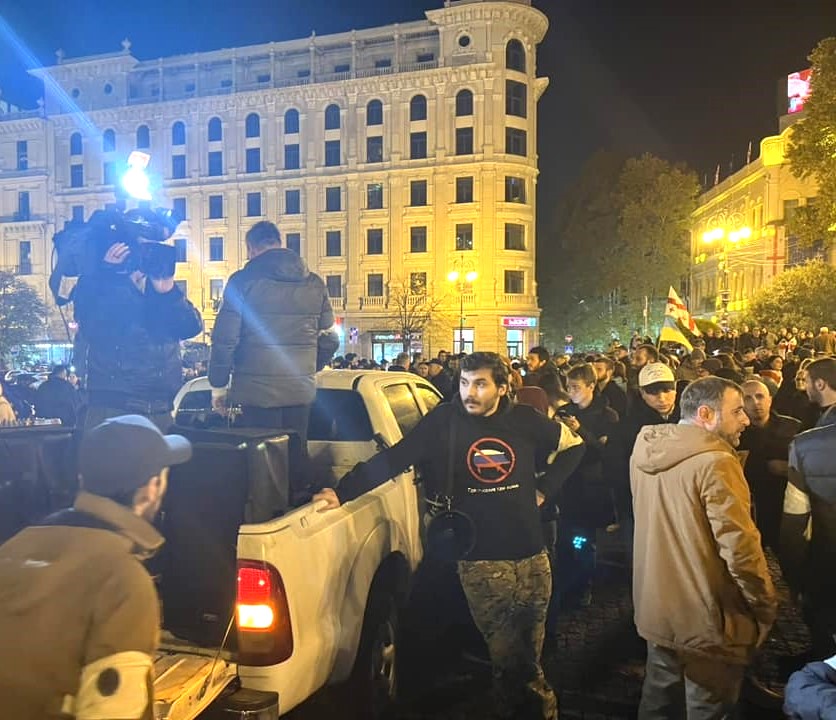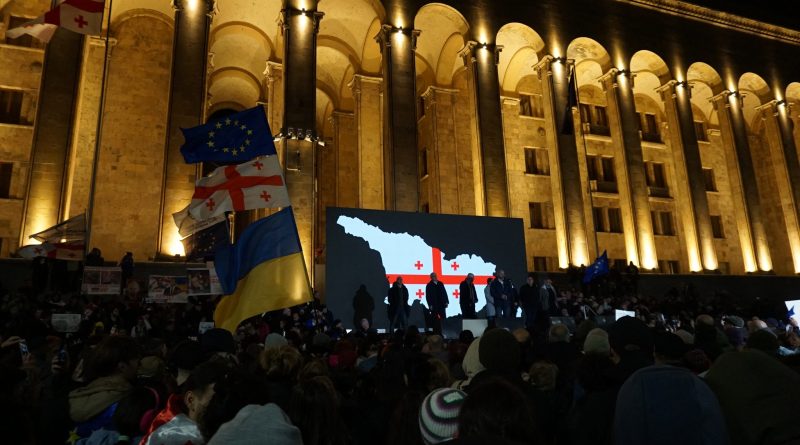Georgia Elections: All the Key Details
The official results of the parliamentary elections held in Georgia on October 26, 2024, are now known. The Central Election Commission published the summary protocol on November 16. Only the ruling party recognizes the results, while opposition parties and civil society groups are declaring the elections illegitimate. They are demanding the annulment of the results and the holding of new elections.
Election Results and Assessments
According to the Central Election Commission, 60% of eligible voters (2,111,834) participated in the 2024 elections, with five political parties and alliances exceeding the five percent threshold: Georgian Dream received 53.93% and has 89 seats in Parliament; Coalition for Change received 11.03% and has 19 seats; Unity National Movement received 10.17% and has 16 seats; Strong Georgia received 8.81% and has 14 seats; and Gakharia for Georgia received 7.78% and has 12 seats.
Opposition parties are refusing to return their mandates and enter Parliament. The President of Georgia is also demanding that the final election results be recognized as unconstitutional. ‘Given the violation of the principles of universality and secrecy in the elections, Salome Zurabishvili demands that the disputed norms regulating the elections and the final results based on them be recognized as unconstitutional,’ the presidential administration said in a statement.
Guarding Democratic Principles
The 2024 parliamentary elections in Georgia were held using electronic technology in some polling stations, while others used traditional methods. Local observation missions claim that the principle of secrecy in the elections was violated in the technologically advanced polling stations.
The Georgian Young Lawyers Association states in its Election Day assessment document: “In the majority of polling stations monitored by GYLA, video cameras were installed by the Georgian Dream, which in some cases were aimed at the registrar’s desks and verification machines, and in other cases at the voting booths and the main ballot box. The quality of the ballots did not ensure that they would not leave traces of a colored circle on the back. The coincidence of these two factors confirms the high risks of influencing the will of the voter.”
The Young Lawyers’ Association challenged the summary protocols for violating the secrecy of the vote, first in the districts, then in the district courts and courts of appeal. Only one district court confirmed the violation of the secrecy of the vote. However, the courts of appeal did not uphold this decision.
In addition, according to ISFED, violations identified during the pre-election period, including pressure on voters, intimidation, confiscation of ID cards, collection and processing of personal data, and voter bribery, significantly damaged trust in the elections. On election day, ISFED identified ballot stuffing, multiple voting, voter bribery, expulsion of observers from polling stations, mobilization of voters outside polling stations, collection of their personal data, and manipulation of their will.
The local observation mission “My Voice” states that the ruling party implemented a fraudulent scheme through the process of collecting voters’ personal data, violating the marking process, and a combination of changes to the Election Code.
International Mission’s Assessment
Election day administration was generally orderly, but polling day was marked by tension, with overcrowding in some polling stations and several incidents of physical confrontation and intimidation,” said the OSCE/ODIHR election observation mission. “At the majority of polling stations, political party representatives, mostly from the Georgian Dream party, recorded the voting process, which had an intimidating effect, as the cameras often pointed directly at voter identification devices or polling booths, potentially undermining the secrecy of the vote,” it added. Outside the polling stations, unknown individuals were involved in voter registration, while inside the polling stations, party representatives were also involved.
The OSCE/ODIHR mission also notes in its initial assessment that there was no regular checking of the markings, and in 54 percent of polling stations, some voters had difficulty inserting their ballots into the vote-counting machine. Domestic observation missions also complain about violations of the will and secrecy of the vote during the process of inserting the ballots into the machine. They emphasize that the secrecy of the vote is a right guaranteed by the Constitution of Georgia and is fundamental to democratic processes.
What’s Next
Georgian Prime Minister Irakli Kobakhidze says that despite the opposition’s insistence on not canceling and questioning the legitimacy of the elections, the Georgian parliament will convene on November 25, exactly 10 days after the official results were announced.

At this stage, people continue to protest in the streets, and there have already been restrictions on the right to freedom of expression and demonstration.
The opposition and civil society are demanding that the international community not recognize the election results.
You can use the material only by referring to the site
